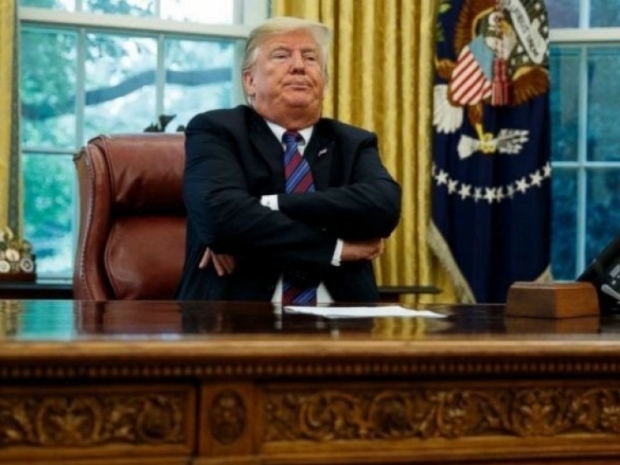The Trump administration is moving ahead with plans to revise safety rules that bar fully self-driving cars from the roads without equipment such as steering wheels, pedals, and mirrors, according to a document made public.
The Trump administration does not support calls to end human driving and has said "it is not the American way".
The department said that the administration “embraces the freedom of the open road, which includes the freedom for Americans to drive their own vehicles”.
So, the National Highway Traffic Safety Administration (NHTSA) “intends to reconsider the necessity and appropriateness of its current safety standards” as applied to automated vehicles, the U.S. Department of Transportation said in an 80-page update of its principles dubbed “Automated Vehicles 3.0”.
The department disclosed that the NHTSA wants comment “on proposed changes to particular safety standards to accommodate automated vehicle technologies and the possibility of setting exceptions to certain standards that are relevant only when human drivers are present”.
US Transportation Secretary Elaine Chao released the document and said that self-driving cars have the potential to dramatically reduce traffic crashes and road deaths.
But she added the “public has legitimate concerns about the safety, security, and privacy of automated technology”.
Carmakers must currently meet 75 auto safety standards, many of which were written with the assumption that a licensed driver will be in control of the vehicle.
General Motors in January filed a petition seeking an exemption for the current rules to use vehicles without steering wheels and other human controls as part of a ride-sharing fleet it plans to deploy in 2019.
Alphabet's Waymo unit plans to launch an autonomous ride-hailing service for the public with no human driver behind the steering wheel in Arizona later this year. But unlike GM, Waymo’s vehicles will have human controls for the time being.
NHTSA has stepped up its self-driving car focus as legislation in Congress on self-driving cars, which passed the US House of Representatives in 2017, has stalled.
The irony here is that any red-tape could slow the US’s adoption of self-driving cars while Europe and China press ahead on the technology. It is ironic because Trump has been removing red tape which allows corporations to do what they like to improve profitability, which will trickle down in the form of jobs.
The department also said it “no longer recognizes the designations of ten automated vehicle proving grounds” announced in January 2017.
Trump visited one site last year, and it was named by Congress to be eligible for grants “to fund demonstration projects that test the feasibility and safety” of self-driving vehicles.
The Transportation Department also announced it would start studying the workforce effects of automated vehicles with the Labour, Commerce, and the Health and Human Services departments.




